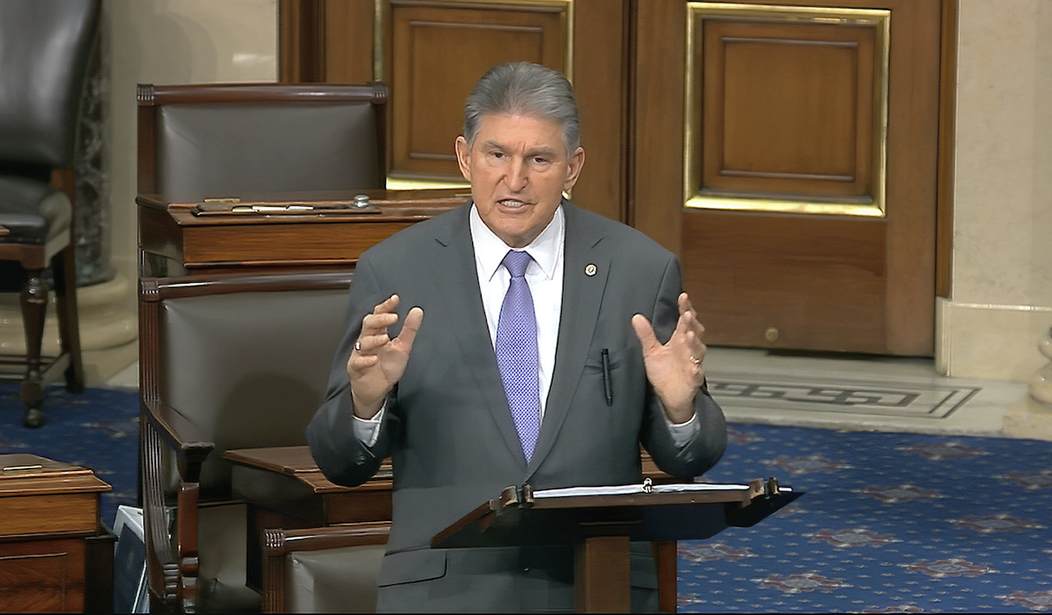Both sides are claiming "victory" this week, following a showdown over Senate procedural rules in the new Democrat-controlled Senate. Because the upper chamber is split evenly between Republicans and Democrats, the Democratic vice president represents the tie-breaking vote, so her party wields the nominal majority. They will now control the floor agenda and committees, though less decisively than they would with an outright majority. Leaders Chuck Schumer and Mitch McConnell are moving forward with a power-sharing agreement largely modeled after the pact that was struck last time voters elected a 50-50 Senate, after the 2000 elections. Republicans will have a bit more power and influence than they otherwise would, but they'll ultimately be the minority party.
The primary roadblock to this accord being finalized was McConnell's insistence that Democrats agree to preserve the legislative filibuster, which requires 60 votes to proceed on most major bills. Schumer wouldn't agree to it, but McConnell had leverage (due to a rules quirk, the GOP would have continued to control committees for a period of time if an agreement wasn't forged, even as the technical minority). The Kentucky Republican eventually ended the stalemate when two moderate-leaning Democrats – West Virginia's Joe Manchin and Arizona's Kyrsten Sinema – made unequivocal statements promising not to tamper with the filibuster during the current Congress (i.e., the next two years). Good enough, said McConnell:
I’m glad that two Senate Democrats confirmed today they will not vote to end the legislative filibuster. They agree with President Biden and me on protecting the Senate.
— Leader McConnell (@LeaderMcConnell) January 26, 2021
With this win, we can move forward with a 50-50 power-sharing agreement built on the 2001 precedent. pic.twitter.com/fHUCFxxXh8
To one of his points, just as Joe Biden vociferously opposed court packing during his years in the Senate, he also argued strongly in favor of preserving the filibuster:
Then-SEN. BIDEN (5/23/2005): “At its core, the filibuster is not about stopping a nominee or a bill, it is about compromise and moderation. That is why the Founders put unlimited debate in. That is what it is about, engendering compromise and moderation.” pic.twitter.com/AnmfRsaKpk
— Senate Republican Communications Center (@SRCC) January 25, 2021
Progressives have been agitating to kill the filibuster to help smooth the path for a hardcore left-wing agenda, using race-baiting to try to achieve that end. Barack Obama, an enthusiastic filibuster participant and defender when it suited his needs, has more recently adopted the talking point that the Senate practice is a "Jim Crow relic" that should be abolished. The most recent people to employ the filibuster, of course, were Senate Democrats – who used that supposed vestige of racism to block debate on a Black senator's police reform bill and stifle COVID relief, among other things. But with airtight-sounding promises from Manchin and Sinema, who have both made similar vows in the recent past, it appears as though the filibuster is safe for the time being. This will likely prevent any wild Democratic overreach, such as adding states to the union or court packing, from succeeding. Lefties are furious, yelling about primary challenges, and fuming that a dead-eyed partisan like McConnell would never take such a powerful option off the table if the roles were reversed:
McConnell wants a promise from the Dems on the filibuster. He’d grant no such courtesy if he was still the majority leader.
— jasoncherkis (@jasoncherkis) January 25, 2021
If McConnell was in charge, he’d kill the filibuster in a heartbeat and come up with some rationale that blamed Democrats for his duplicity. He doesn’t play. Don’t give up. #EndTheFilibuster https://t.co/883WikaLFu
— Hilary Rosen (@hilaryr) January 26, 2021
This is moronic, of course. McConnell was in charge. For the last six years, two of which featured unified GOP control of government. President Trump repeatedly pressured him to kill the filibuster, but he steadfastly refused to do so, with the support of many GOP Senators. This hypothetical was tested – a lot, and very recently – yet people like Cherkis and Rosen tweet out this garbage to rile up their fellow partisans, evidently banking on their ignorance. Lastly, I've seen quite a few jaded, veteran political observers coalescing around the "smart" conventional wisdom that the pledges from Manchin and Sinema are worthless. They're against ending the filibuster...until they aren't, according to this line of commentary. The premise is that these more centrist members are stating a hypothetical opposition to changing the rules through the "nuclear" option, but when there's a live, hot debate underway over real legislation that would advance a Democratic majority, they might or will cave. This may or may not prove accurate. But it's worth noting that people treating this future cave as a borderline inevitability are basically calling these two senators liars.
Read their respective statements. They don't carve out wiggle room. If Manchin and Sinema reverse course at the behest of Schumer and their left flank at some point over the next two years, they will necessarily do so in violation of their clearly-stated word. That might not mean much to some politicians (and some Republicans will surely be reminded of their own 180s, while others remained consistent), but I wouldn't necessarily presume that these two would discard their credibility too lightly. In short, I think that the cynical view of these senators' promises is entirely plausible, but McConnell also accepted their explicit assurances for a reason.
























